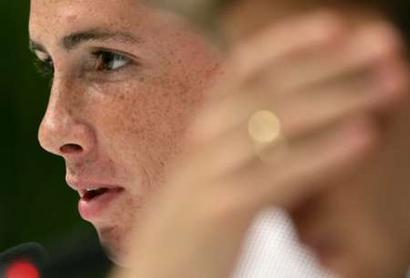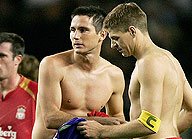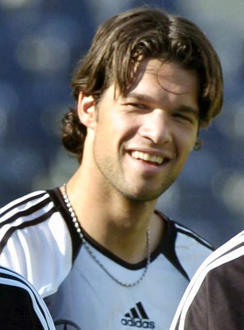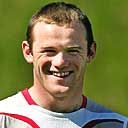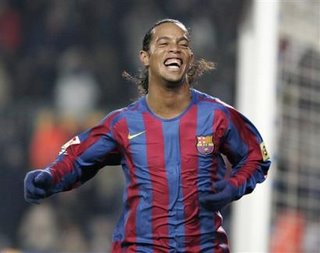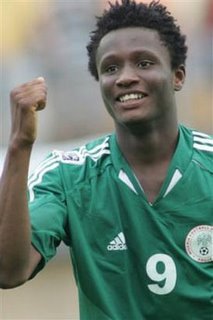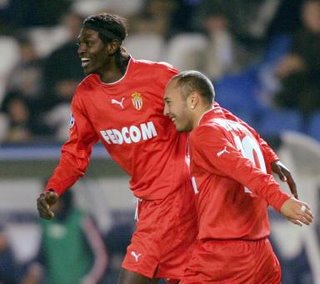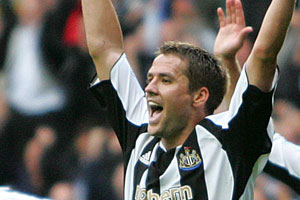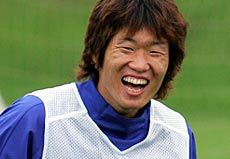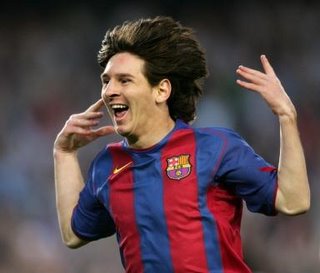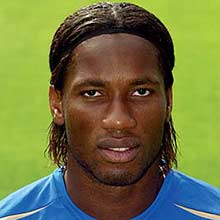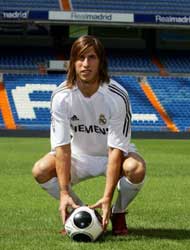
While Spain were battling it out at Korea/Japan 2002, a 16-year-old Spaniard by the name of Sergio Ramos was roaring them on from his home in distant Seville and longing for the day when he too would don the famous red jersey. Now, four years down the road, it looks as if the youngster's dream is about to come true.
Ramos' progress both at club and international level has been nothing short of meteoric. He made his Spanish league debut with Sevilla in February 2004 and then went on to play six more top-flight games that season. After another 31 appearances for the Andalusian club the following year, Real Madrid were sufficiently impressed to fork out an eye-watering €27million to take the gifted defender to the Bernabeu.
"Very few kids of my age have managed to do what I've done," says Ramos during an exclusive interview with FIFAworldcup.com. "It's true the only thing I have right now on my CV is the European U-19 Championship, but that's something I intend to address very soon," he adds with a smile. It seems that the number 19 has been an auspicious one for the young Sergio. It was at the UEFA European U-19 Championship in Switzerland that he won his first international tournament, helping Spain to victory over Turkey in the final. Then on 30 March 2005 - the player's 19th birthday - he made his debut for the senior side in their crunch FIFA World Cup™ qualifier in Belgrade against Serbia and Montenegro wearing, you guessed it, the No19 shirt.
"I was over the moon when (coach Luis) Aragones gave me my chance. Naturally, I chose that number because of my birthday. All in all, it was a very special day for me," he confesses, the emotions of the whole experience still fresh in his mind.
In December Aragones brought together 33 players whom he felt were candidates for a place in the Spain squad for Germany and Ramos was among them. "It was a group occasion and an opportunity for us all to meet and spend some quality time together. After lunch, the coach stressed that it was imperative we keep on working hard with such an important competition as the World Cup coming up. The final squad will be chosen from the 33 of us who were there."
The prospect of playing in his first FIFA World Cup at just 20 is the stuff of dreams for this born-and-bred Andalusian. Though he welcomes his coach's motivational words, Ramos says his own hunger is enough to make him strive during every game and training session for a place in Germany.
"That is one of the goals I've set myself, and it's a significant one for any footballer. I'll fight every day to achieve success with my team and to make it to the World Cup," he vows.
Ramos has played in the centre of defence, as a defensive midfielder and at right-back, but where does he feel most at home? "I've been asked that question many times but have never given a straight answer. That's because I believe versatility is a very important quality in a player. As long as the coach decides to play me from the start, I'm not too bothered about where I play."
He already knows Aragones would rather play him on the right, which would put him in direct conflict for a starting place with Real Madrid team-mate Michel Salgado. The choice would be youth versus experience, though interestingly both would be taking their FIFA World Cup bow.
"I think it's very important to have young players in the side, as they can bring something new to the table. That said, I also believe you need to strike a balance between new talent and old heads. In the latter group there are veterans like Raul, (Carles) Puyol, (Fernando) Morientes, guys with a wealth of experience in the national team who have an important role to play both on the field and in the dressing room," says Ramos.
Then there are the young guns. Despite his dramatic rise through the ranks, the defender has not forgotten his old colleagues from the youth sides, even going so far as to make a few recommendations to his boss: "There are many players making a strong case for inclusion. Yes, I know it's complicated, but Cesc Fabregas (at Arsenal) and Andres Iniesta (at Barcelona) are two players who are making the grade and would deserve it."
Ramos firmly believes in Spain's potential and says they have what it takes to make a big impression at the finals in Germany, especially after a relatively kind draw pitted them in Group H alongside Ukraine, Tunisia and Saudi Arabia. In spite of that, Ramos is keeping his enthusiasm in check.
"Your first impression might be that it's an easy group, but you have to respect all the teams," he says. "They're where they are for a reason. We know they're all strong sides, even if they don't have the same reputation as some other countries and so we'll be going all out to try and beat them and get out of our group. Ukraine might turn out to be the key side in the group. We know they will be a strong proposition, and so we’ll be very wary of them."
Spain's best ever finish at a FIFA World Cup was fourth, back in Brazil in 1950. Since then they have seen their repeated attempts to emulate that feat founder at the quarter-final stage, and sometimes even earlier. So just how far can they go this time round? "Hopefully all the way to the final," says Ramos.
"We've got a great squad this year, so we're hoping for a great World Cup.
At the very least, we hope to break the curse of the quarter-finals."
Given that almost everything else he has longed for has come true, perhaps that wish will too.
(by FIFAworldcup.com)

